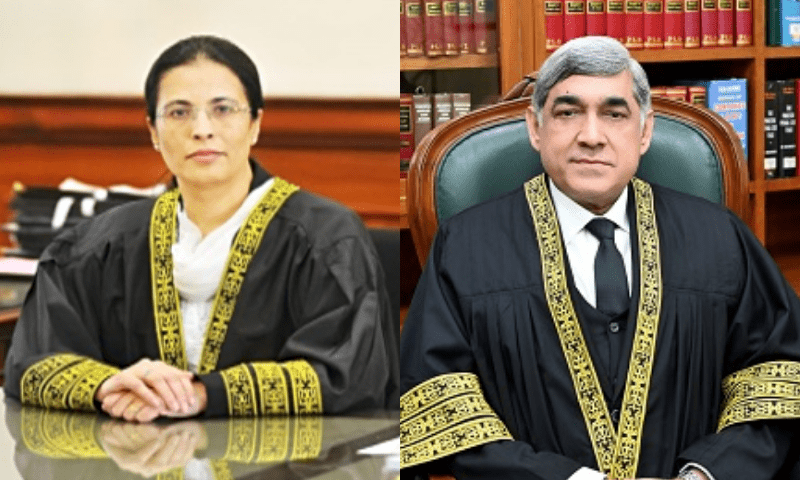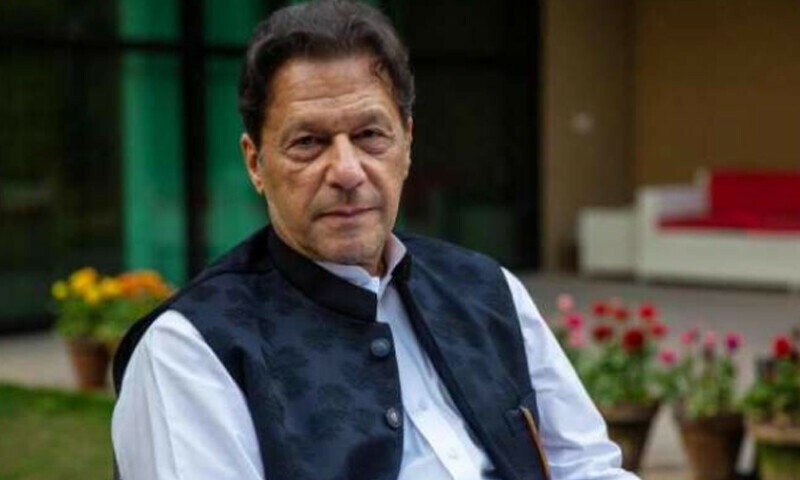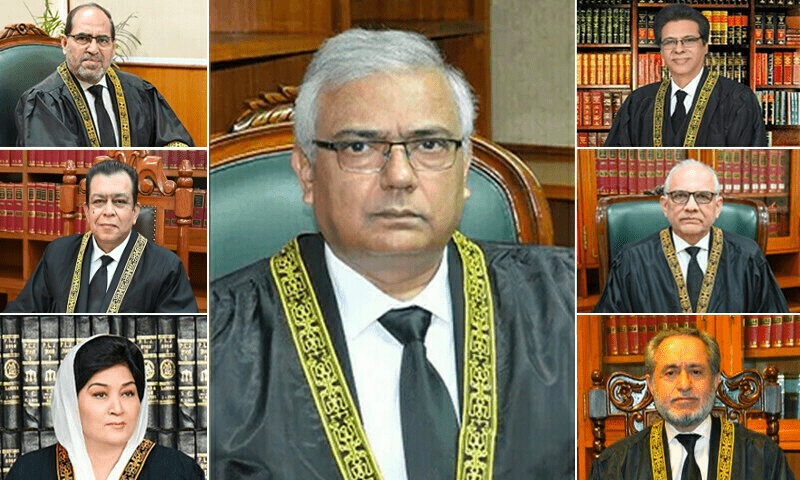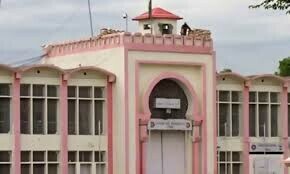LEGAL

The Supreme Court of Pakistan’s constitutional bench (CB) on Monday initiated hearings on review petitions challenging its July 12, 2024 verdict that declared the PTI eligible for reserved seats in the National Assembly. Two judges on the 13-member bench — Justices Ayesha A. Malik and Aqeel Ahmed Abbasi — questioned the maintainability of the pleas and declared them inadmissible.
The petitions, filed by the Pakistan Muslim League-Nawaz (PML-N), the Pakistan Peoples Party (PPP), and the Election Commission of Pakistan (ECP), challenge the implementation and legality of the top court’s earlier decision that recognized roughly half of the 80 MNAs as returned PTI candidates, potentially making PTI the largest party in the NA.
While the July ruling has yet to be implemented due to ECP’s objections, Monday’s hearing exposed deep divisions within the judiciary and raised questions about the role of the electoral watchdog.
The CB, headed by Justice Aminuddin Khan, issued notices to all parties with a split majority of 11–2 and adjourned the hearing until Wednesday. Meanwhile, a contempt plea filed by PTI’s Kanwal Shauzab against the ECP for failing to implement the July ruling will also be heard alongside the review cases.
Dissenting Voices and Judicial Pushback
Justices Malik and Abbasi criticized the admissibility of the review pleas. Justice Malik emphasized the limited scope of reviews and questioned the basis for revisiting a detailed, previously adjudicated verdict. “What is the basis of your review petition?” she asked the PML-N’s counsel, Barrister Haris Azmat.
Justice Abbasi added: “Tell us what the mistake in the judgment was. Don’t repeat your arguments from the original case.” He stressed that the SC had already interpreted the Constitution, and dissatisfaction with its outcome does not justify a review.
ECP's Position Under Fire
The ECP’s counsel Sikandar Bashir Mohmand admitted that the electoral body only partially implemented the Supreme Court’s ruling. Justice Ayesha strongly criticized this selective implementation: “You cannot pick and choose which orders to follow.”
The bench questioned how the ECP — a body meant to hold elections — could be considered an “affected party” and eligible to file for review. Justice Mandokhail asked pointedly: “Is it up to your wishes that which paragraph you choose to implement?”
Justice Ayesha also challenged the ECP's legal standing in filing a review without having first executed the original order. “You are standing before the court. What does it mean that it is not confirmed to you?” she asked the PML-N counsel.
Legal Context and Background
The SC’s original ruling was authored by Justice Mansoor Ali Shah and found the ECP guilty of “unlawful acts and omissions,” which led to “confusion and prejudice” against PTI and its voters.
In response, the government introduced amendments to Sections 66 and 104 of the Elections Act and added Section 104-A — seen as attempts to block PTI from claiming reserved seats. PTI has also challenged these legislative changes before the apex court.
Earlier on Sept 14 and Oct 18, the SC reprimanded the ECP for non-compliance and clarified that new amendments could not retroactively nullify the verdict.
Judicial Standards for Review
Coinciding with the reserved seats hearing, a separate three-member SC bench led by Justice Mansoor Ali Shah ruled that a “clear error” must be identified to justify a review under Article 188. Mere disagreement or dissatisfaction with a verdict does not warrant a review, the judgment clarified.
The bench warned that Pakistan’s backlog of over 2.2 million pending cases is worsened by frivolous litigation. “Review is not a backdoor appeal,” the order stressed.
As the Supreme Court resumes the high-stakes hearing on Wednesday, all eyes remain on how the bench navigates judicial integrity, constitutional clarity, and political pressure amid growing tensions over PTI’s political future.




